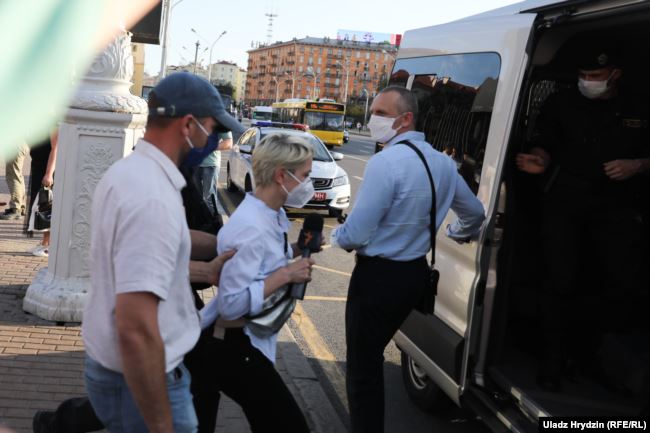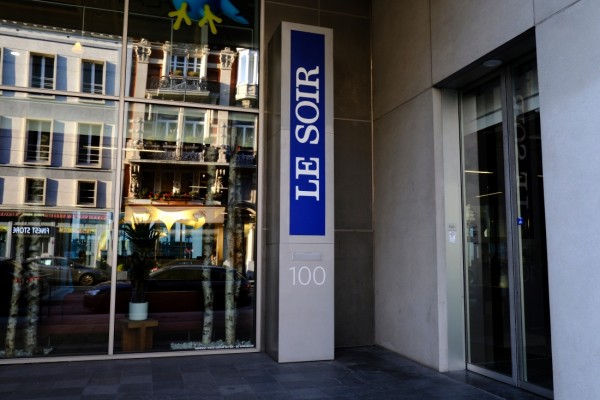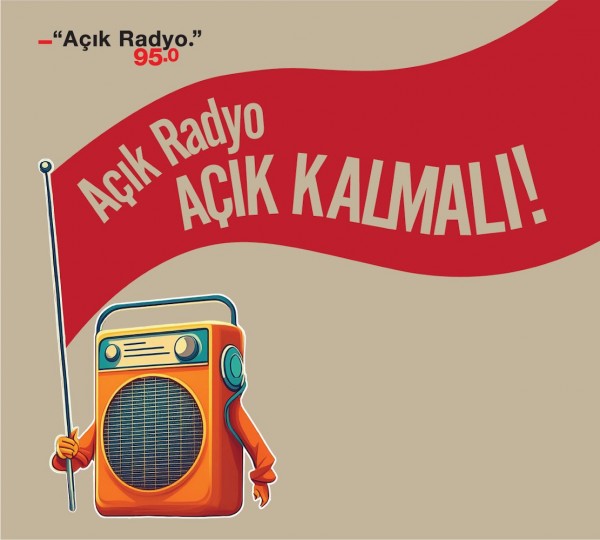The International Press Institute (IPI), a global network of editors, media executives and leading journalists for press freedom, today condemned the arrest of journalists reporting on demonstrations against Belarusian President Alexander Lukashenko’s re-election campaign.
On June 19, at least 14 journalists were detained by police as they reported from the protests held in cities across the country, including the capital Minsk, according to IPI research and local reports.
Radio Free Europe/Radio Liberty journalist Alyaksandra Dynko was arrested while she was reporting live on air from one of the rallies in Minsk. Her cameraman Andrey Rabchyk was also detained and both were released after a few hours.
Riot police also detained Belsat TV photojournalist Iryna Arakhouskaya, according to her employer. Reuters cameraman Uladzimir Kostsin was also reportedly arrested.
That evening, TUT.BY photographer Vadzim Zamirovsky and Onliner journalist Nastasya Zanko were also arrested, according to media reports by their employers. Zanko was held for nearly two hours before being released. Maria Vaitovich and Artsiom Mayorov, correspondents for Polish broadcaster Euroradio, were also detained.
Earlier that day, Alyaksandr Barazenka and Halina Abakunchyk, two journalists with Belsat TV, were detained by police for three hours after meeting with Viktor Babaryko, one of the main challengers in the upcoming presidential election.
According to the Belarusian Association of Journalists (BAJ), the pair were detained under Article 22.9 of the Code of Administrative Offences (Violation of the Law on Mass Media) for working without journalistic accreditation.
Three of those arrested were convicted in local courts of allegedly participating in unsanctioned protests.
“Yet again, Belarusian police and security forces are rounding up journalists reporting on demonstrations in a blatant attempt to silence news coverage and intimidate independent media ahead of this summer’s election”, IPI Deputy Director Scott Griffen said. “We call on authorities to release any detained journalists immediately and respect press freedom and the public’s right to information.”
Pattern of arrests of journalists
President Lukashenko, who has ruled the country since 1994, is seeking a sixth term in office in August this year. In recent months, authorities have cracked down on protests and opposition rallies in an apparent attempt to quash dissent and smooth his path to victory.
On the evening of on June 19, between 100 and 120 demonstrators and opposition activists were detained by riot police, according to different media reports. Demonstrators had been collecting signatures for the nomination of presidential candidates.
The previous day, Viktor Babaryka, one of Lukashenko’s main election rivals, was detained on suspicion of financial crimes. His son, who heads his presidential election campaign, was also arrested. The European Union condemned the move.
In recent months, other journalists reporting on the election campaign and rival candidates have been arrested.
Over the course of two days on May 8 and 9, four different journalists were arrested and charged with “participating in an unauthorized demonstration”, as IPI documented at the time.
All four had been attending the rallies in a professional capacity to report on the protests supporting a detained vlogger and opposition candidate who recently announced he would run against Lukashenko in the election.
On May 7, the Belarusian authorities stripped two Russian media workers of their press accreditation after they reported about increasing coronavirus death rates in the country.
Belarus is well-known for muzzling free speech and harassing independent media. Already one of the worst performing countries in Europe on press freedom, the situation has continued to worsen over the last few years, according to an IPI report.



